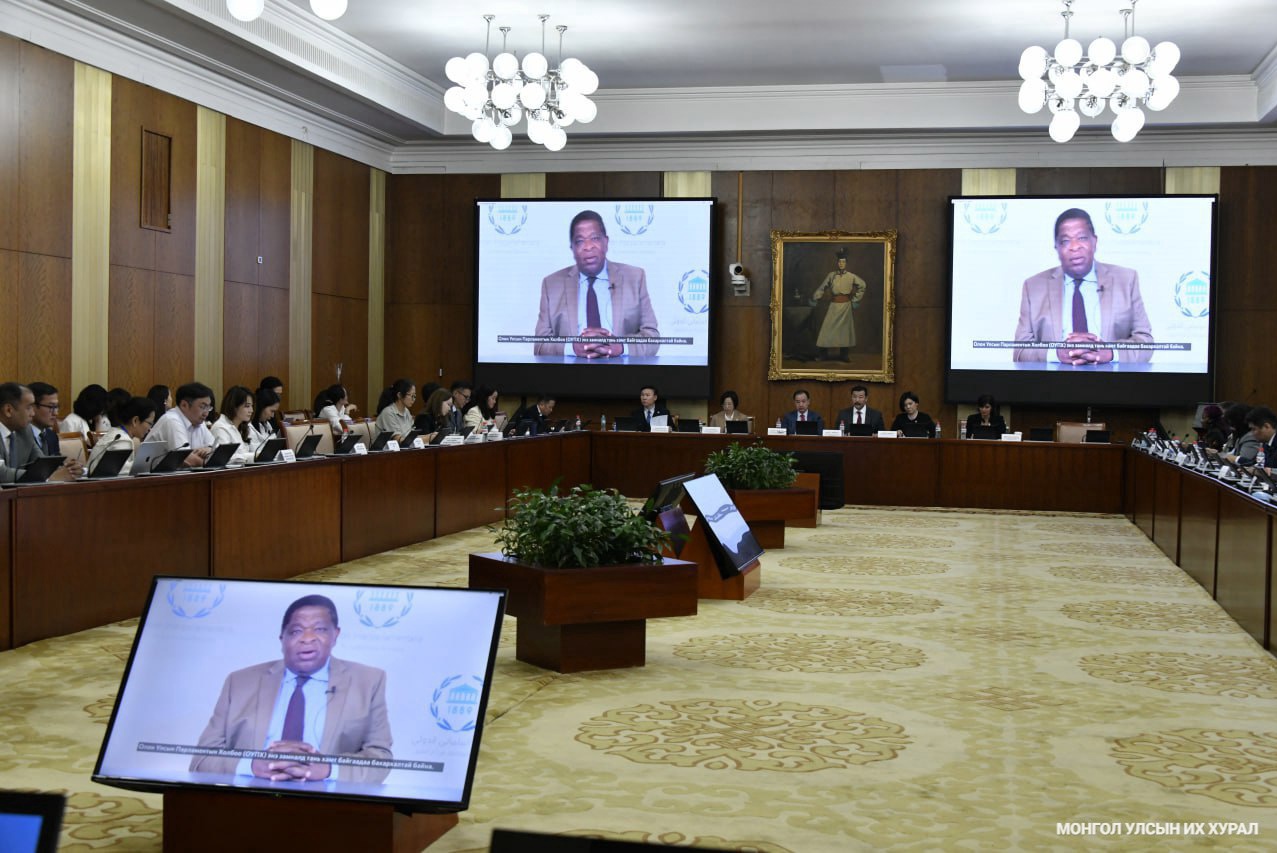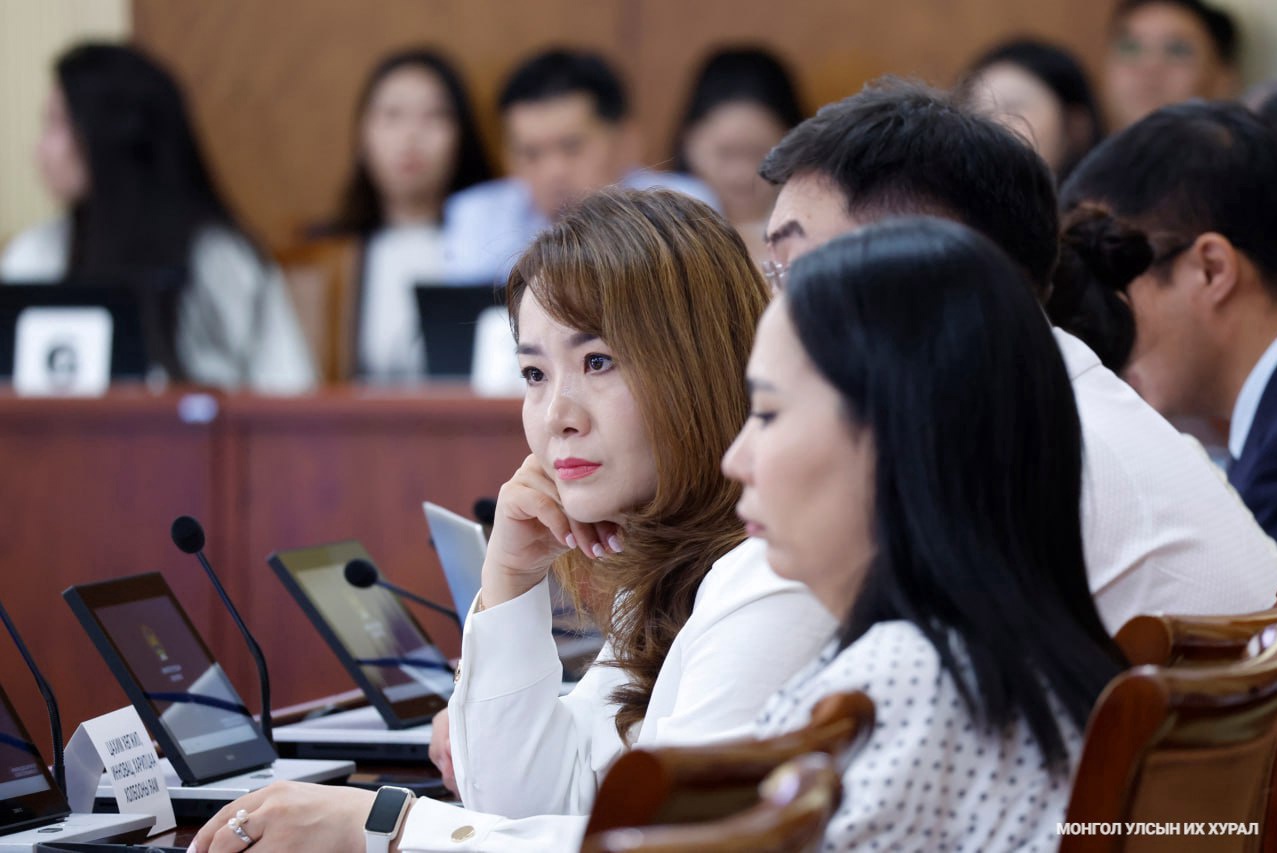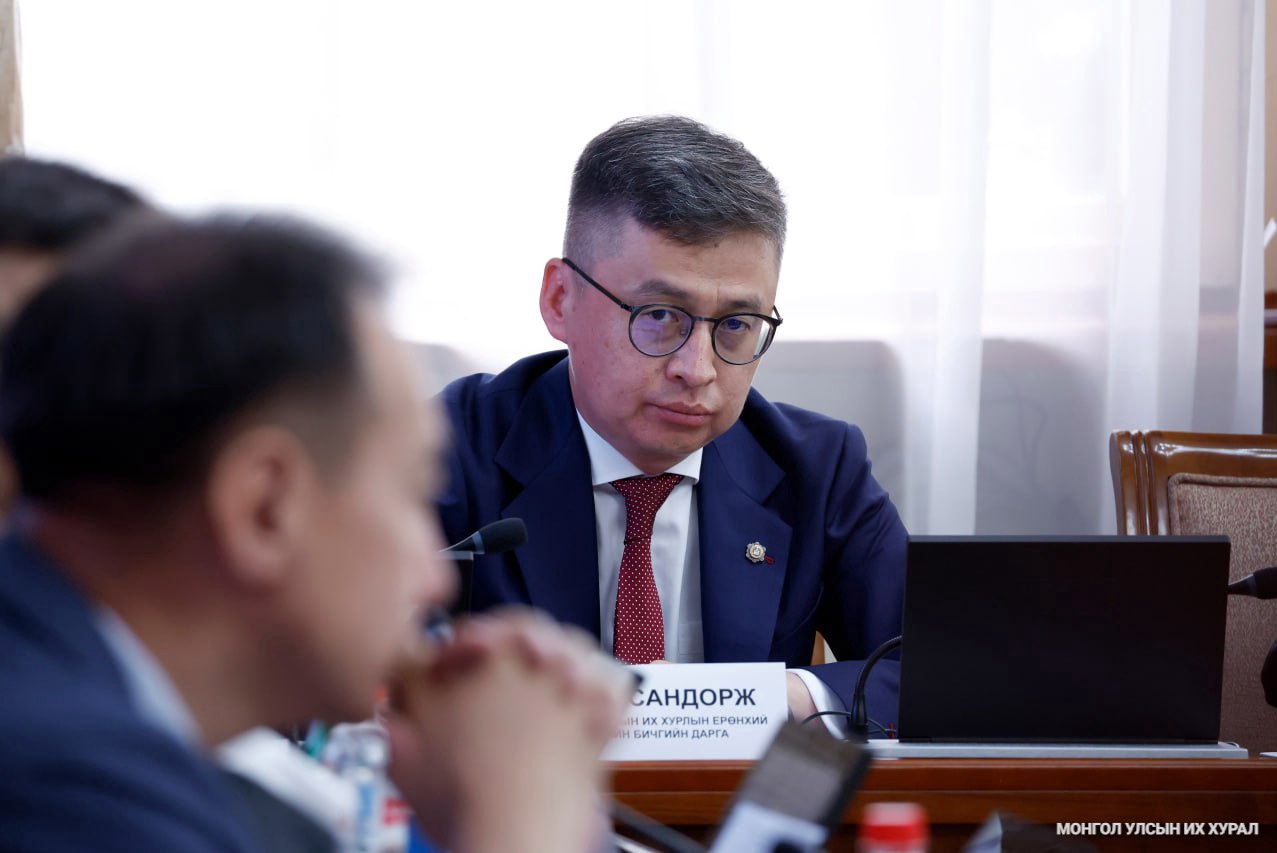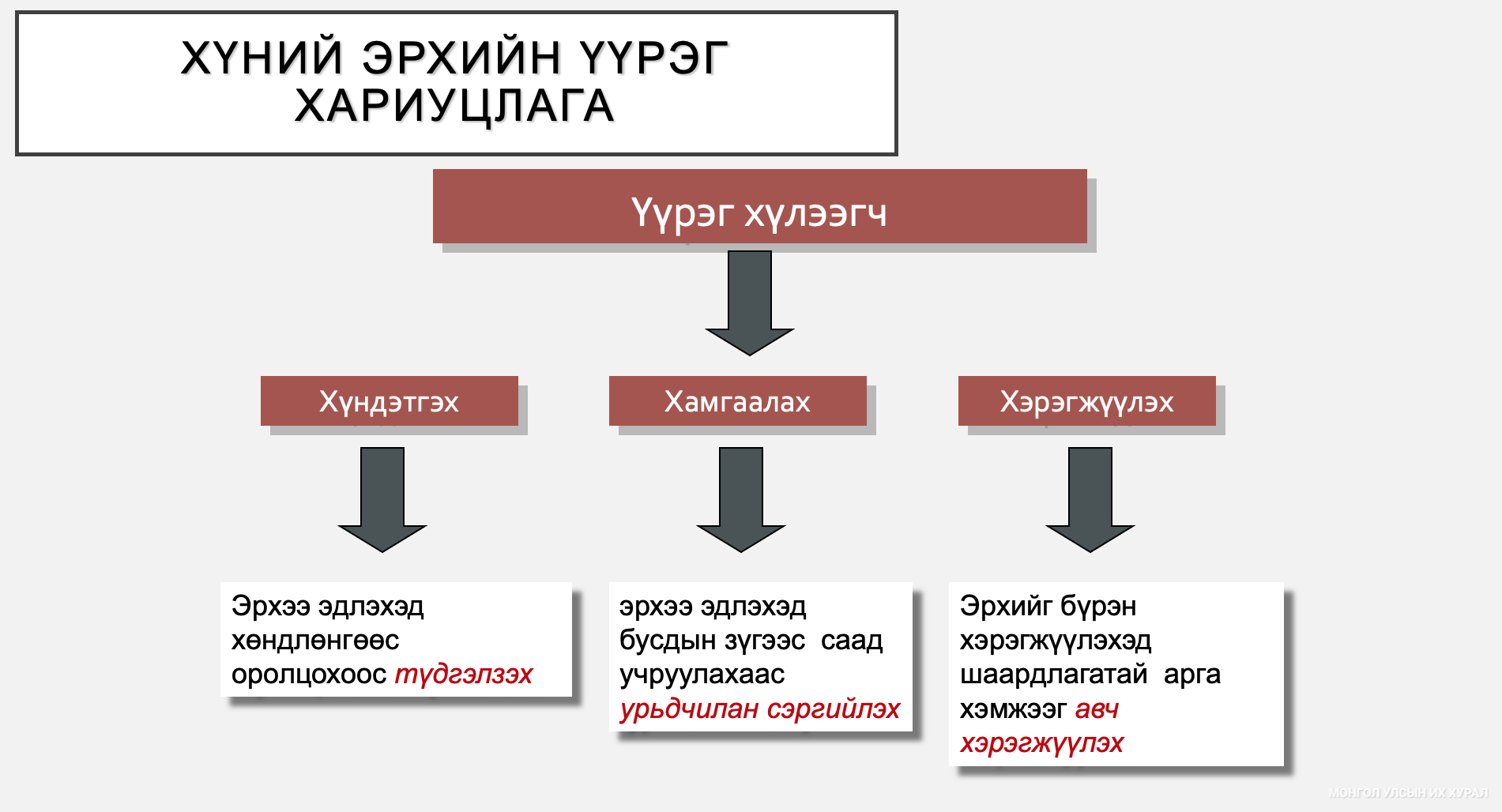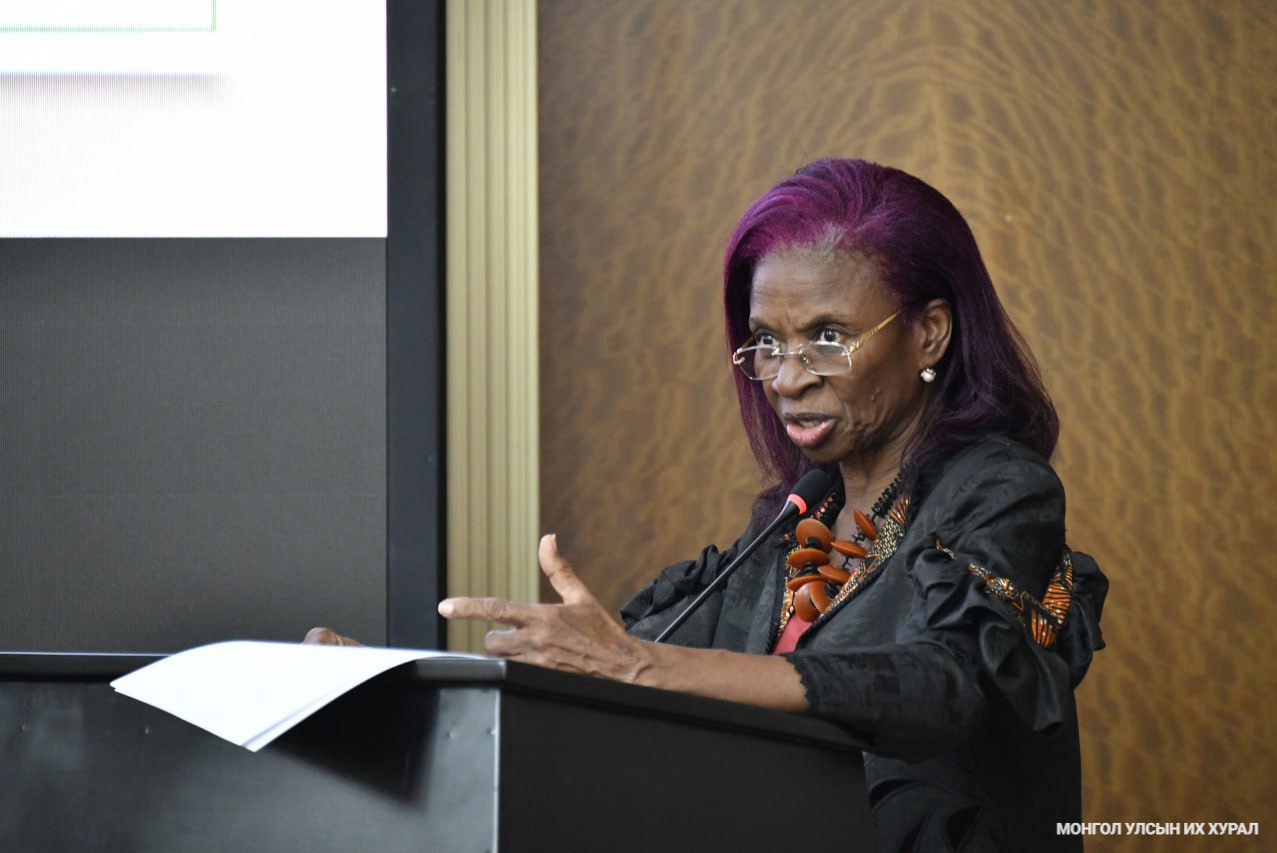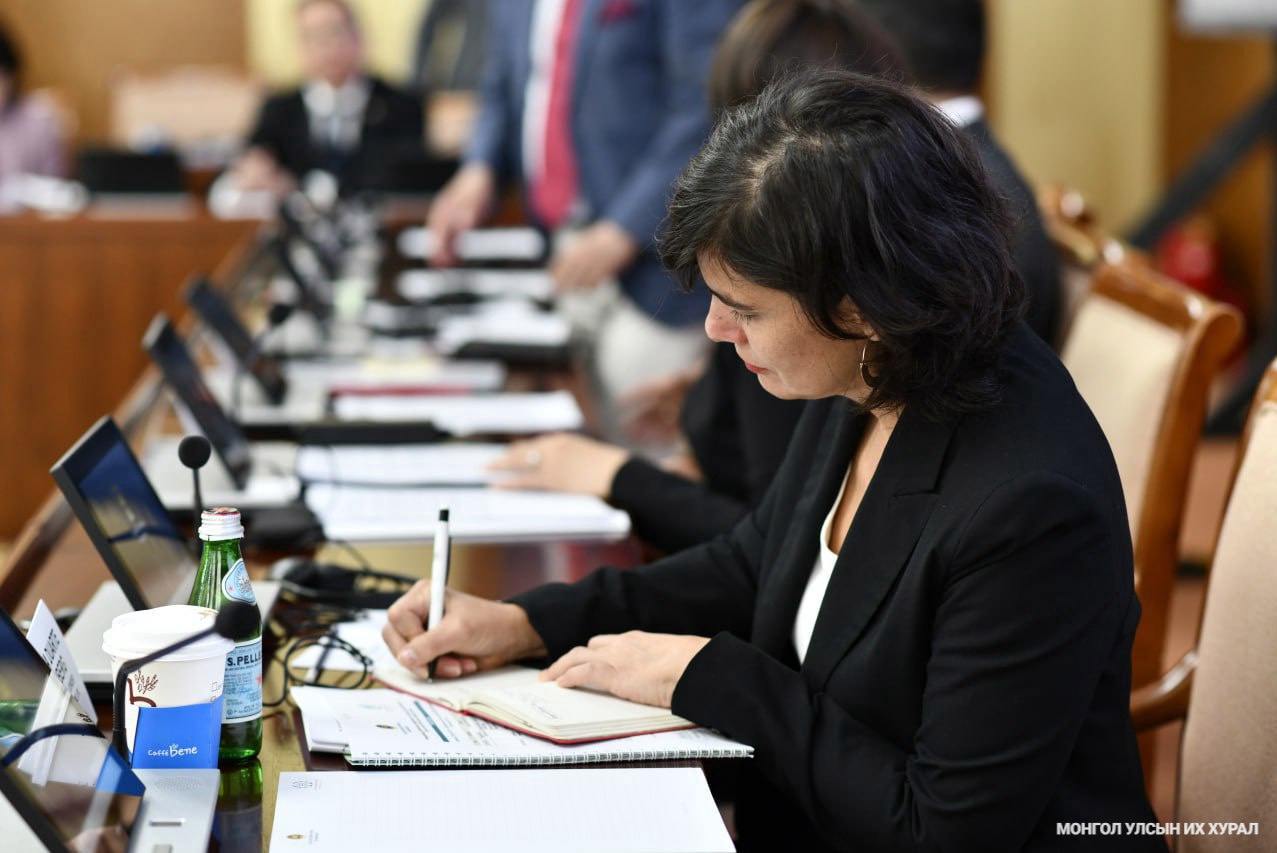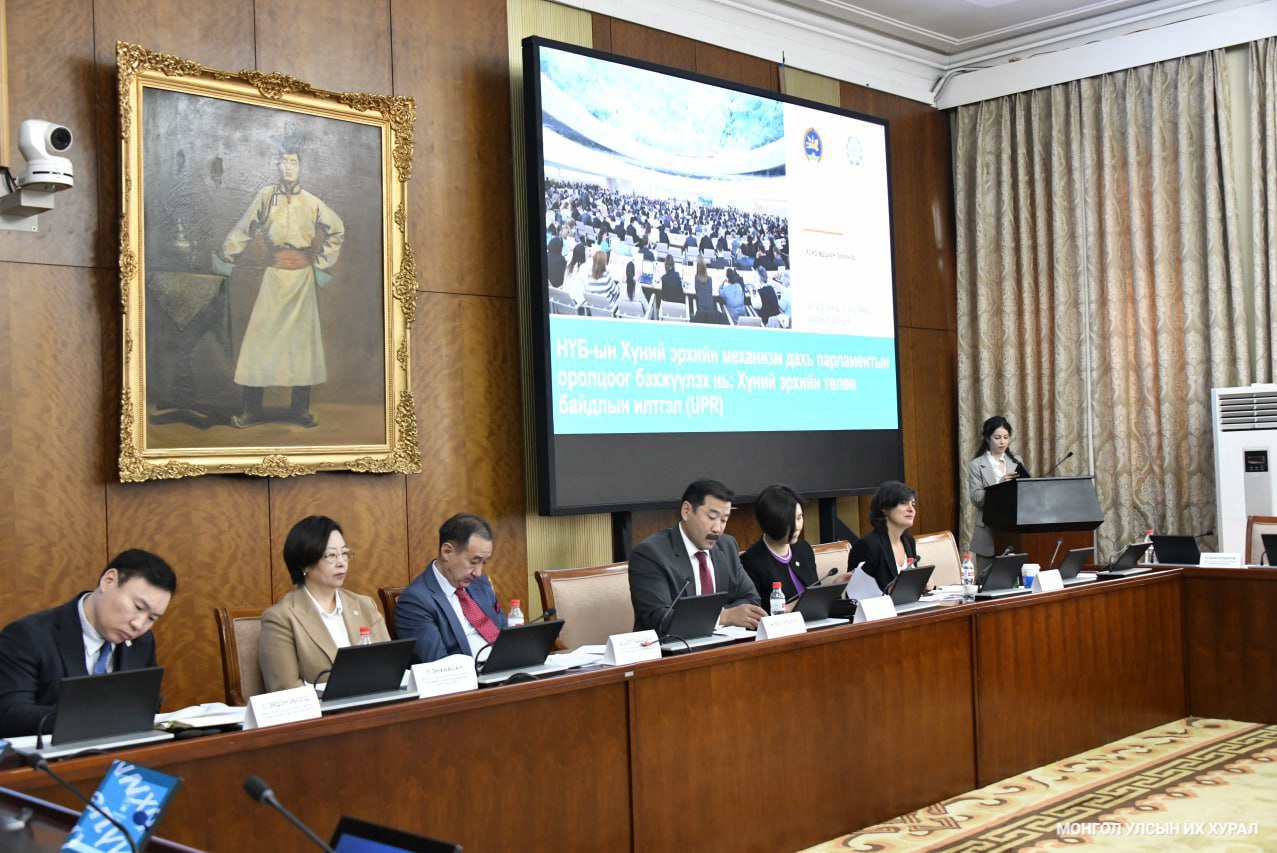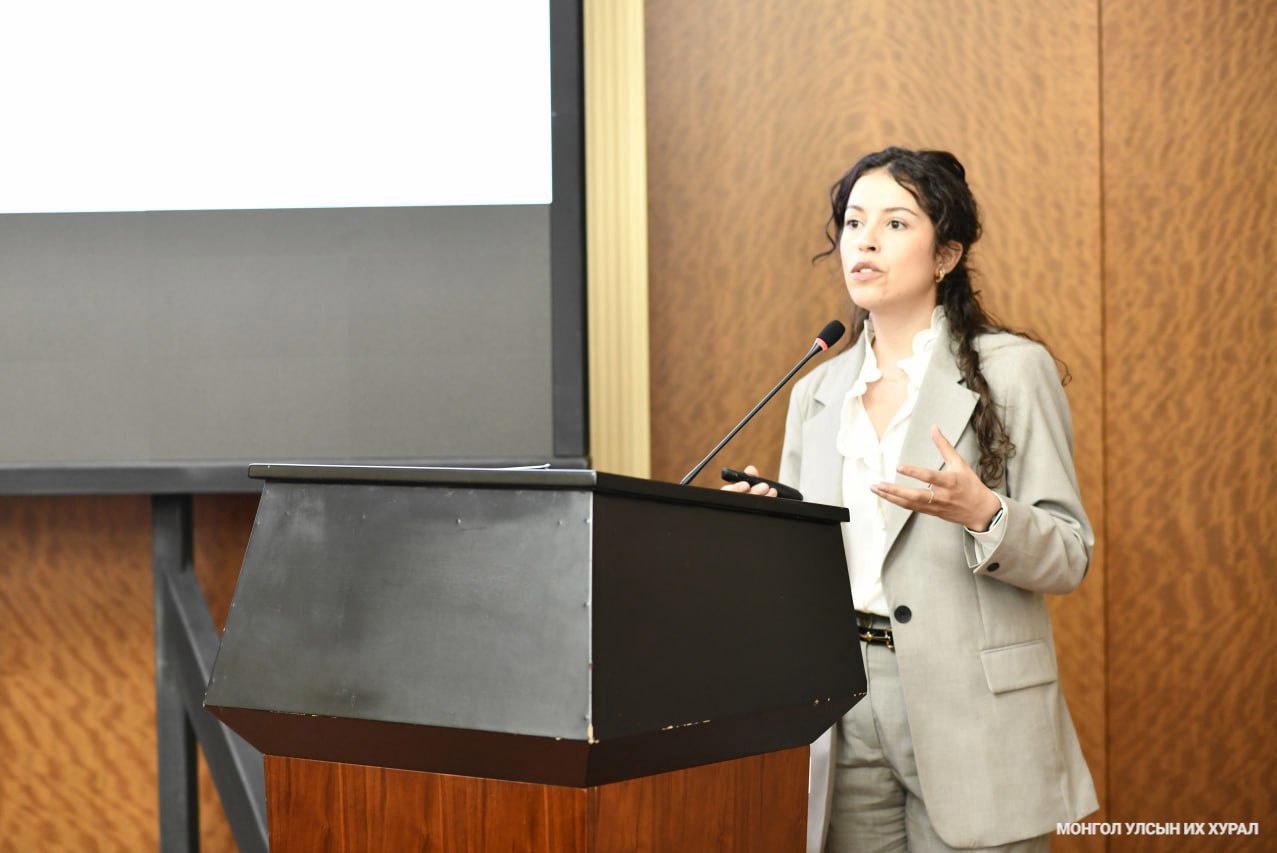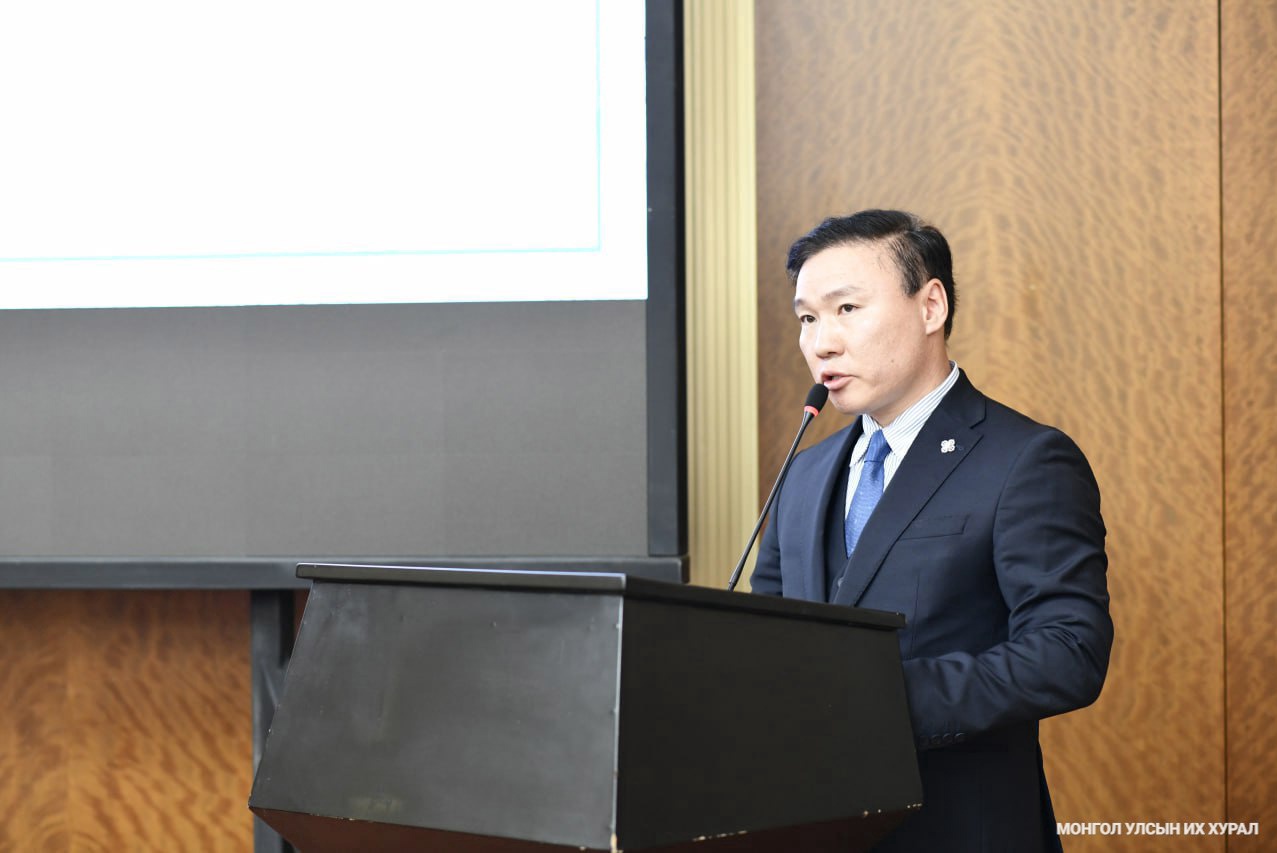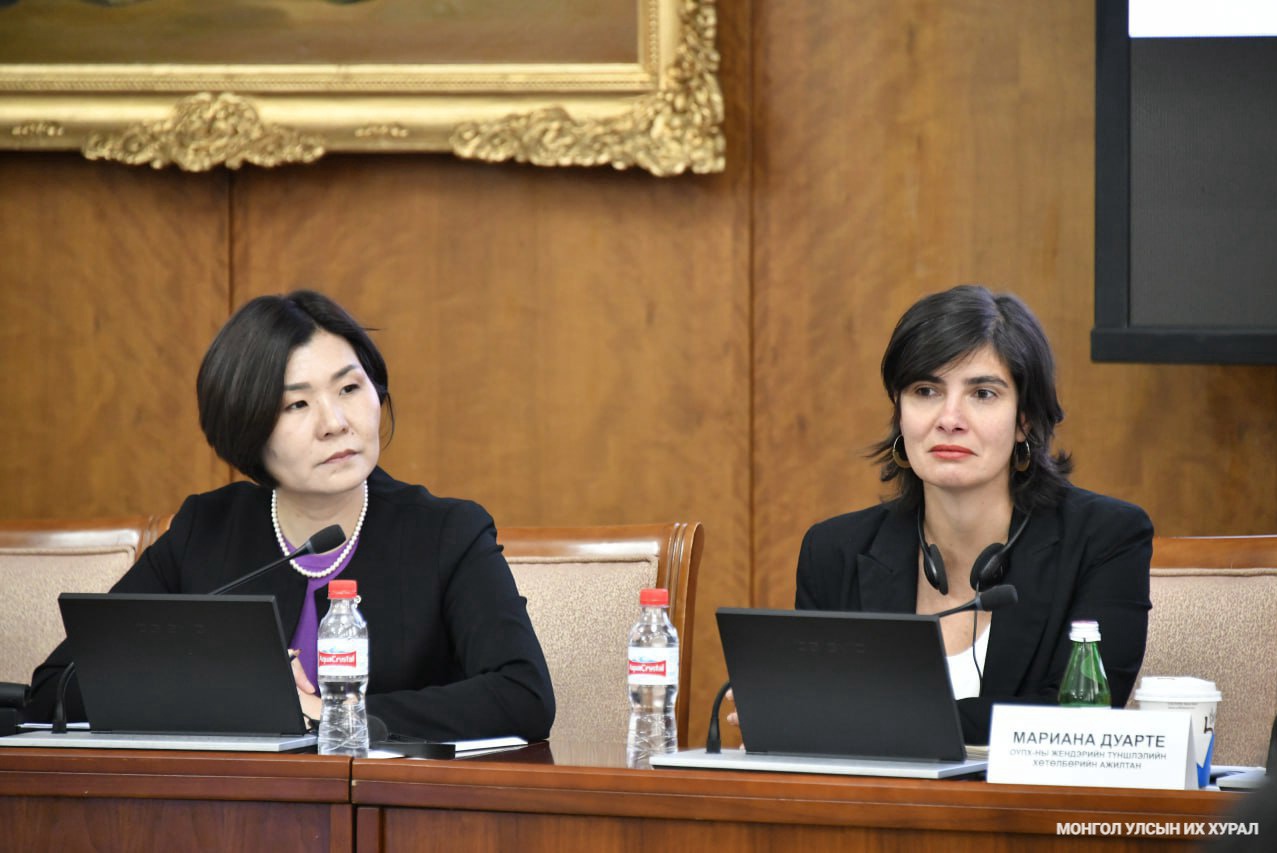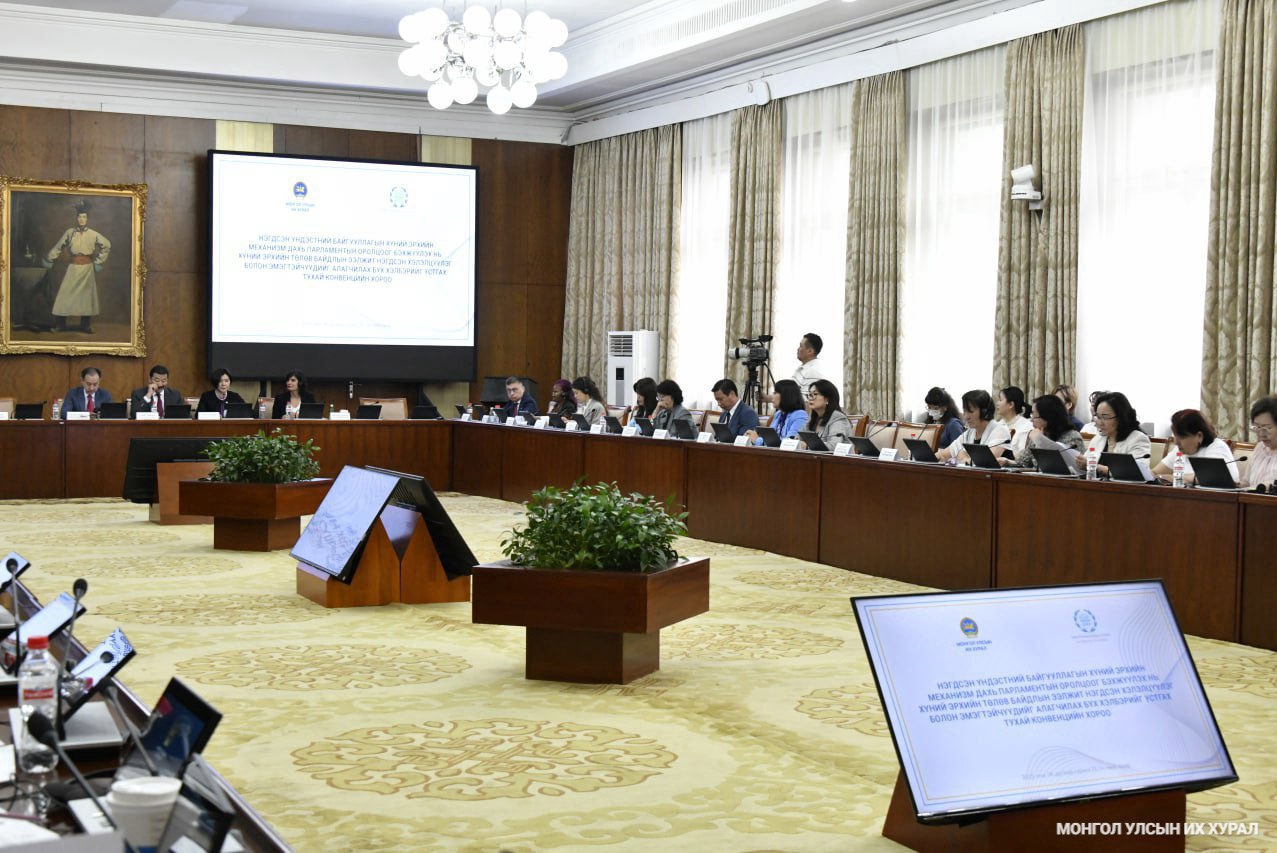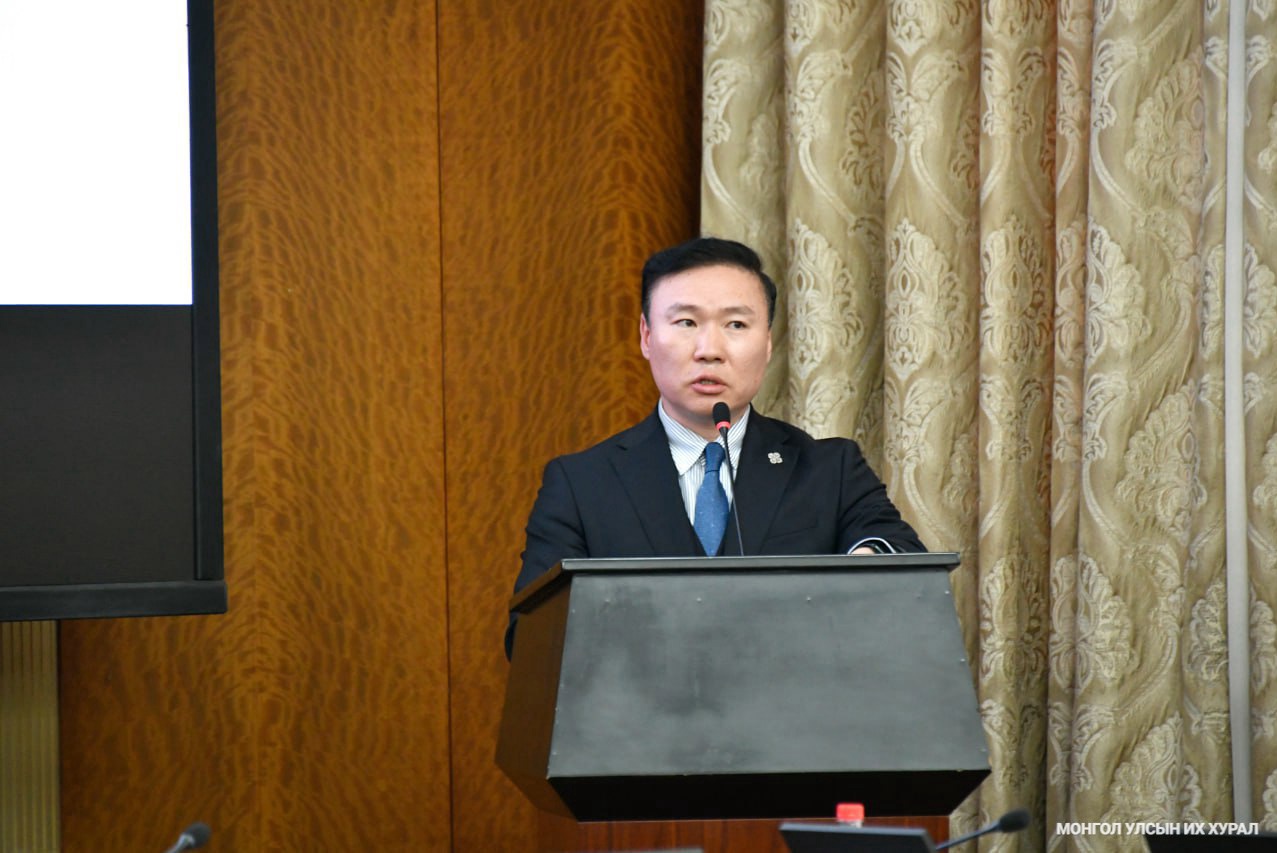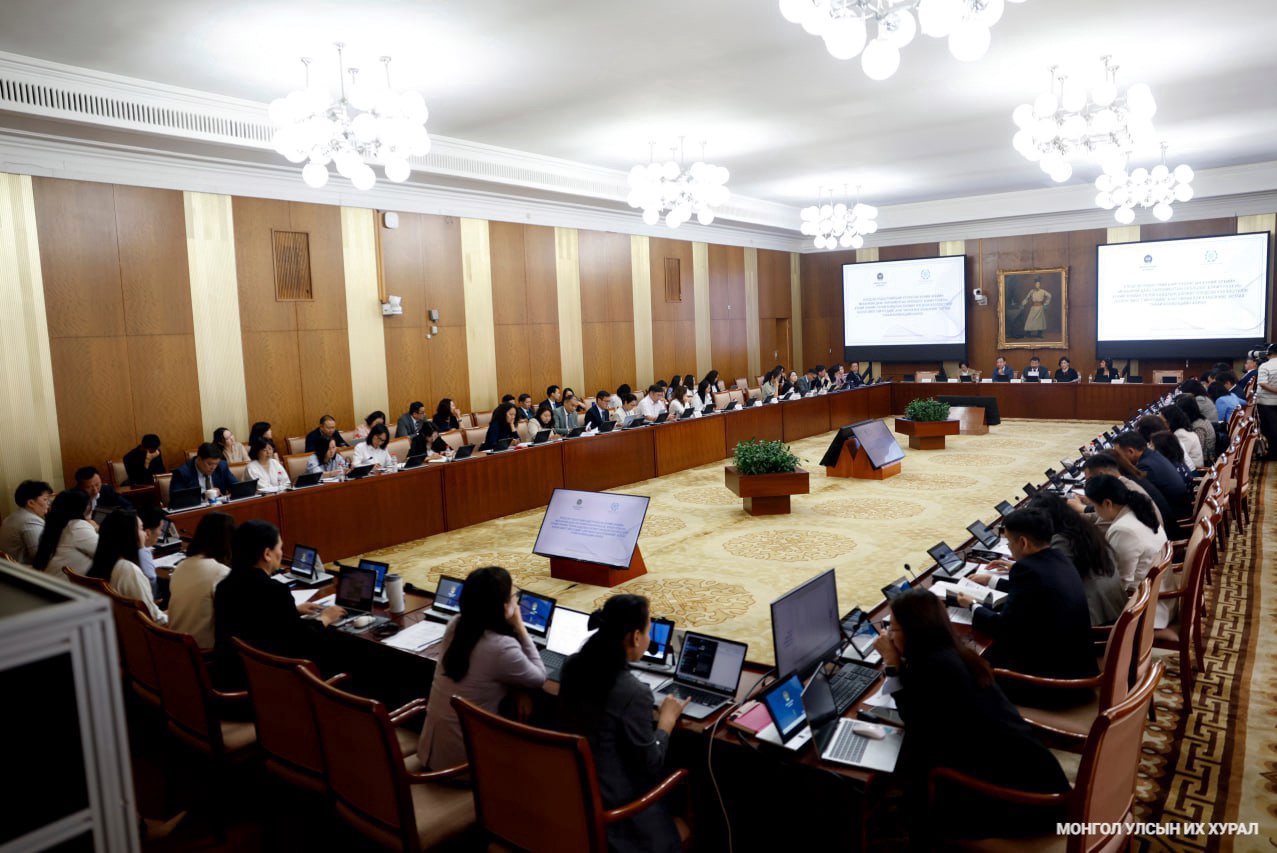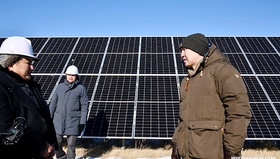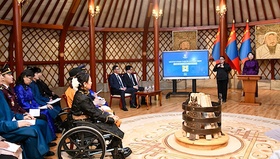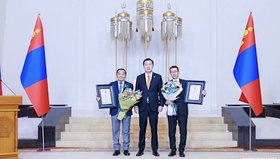A meeting-discussion on strengthening parliamentary participation in the United Nations (UN) human rights mechanisms, co-organized by the State Great Hural (Parliament) of Mongolia and the Inter-Parliamentary Union (IPU), is currently underway at the State Palace on June 23, 2025. The meeting is moderated by Member of Parliament G. Uyangakhishig, with opening remarks delivered by Chairman of the Standing Committee on State Structure J. Bat-Erdene and Chairman of the Standing Committee on Legal Affairs D. Tsogtbaatar. Secretary General of the IPU, Martin Chungong, delivered a welcome address.
The two-day meeting's first day features five panel discussions. Following the opening session, a session was held on the Universal Periodic Review (UPR) involving Mongolia, UN human rights monitoring bodies, and discussions on the human rights situation.
Hilary Gbedemah, former Chair and member of the UN Committee on the Elimination of Discrimination against Women (CEDAW), and current IPU expert on CEDAW, as well as Rector of the Law Institute of the Republic of Ghana, presented an overview of UN human rights treaties and mechanisms. She emphasized the importance of increasing parliamentary awareness and engagement in the activities of the UN Human Rights Council, especially in relation to the UPR and the CEDAW Committee.
Citing the UN Charter adopted in 1945, particularly Article 1.3, Gbedemah highlighted the commitment to promoting and encouraging respect for human rights without distinction. She also cited Article 1 of the 1948 Universal Declaration of Human Rights (UDHR) and proposed amending the phrasing to reflect gender equality more explicitly. She stressed that these foundational documents serve as the basis for all subsequent international legal frameworks on human rights.
She explained the universality, indivisibility, and interdependence of human rights and emphasized the need for both permanent and temporary measures to ensure the rights of individuals with specific needs. Mongolia was encouraged to adopt tailored approaches and sustained efforts.
At the national level, she noted that Mongolia has incorporated human rights principles into its Constitution and domestic laws. She stressed the importance of legal instruments such as treaties, conventions, pacts, and protocols, while also recognizing the role of soft law documents such as declarations and standards.
Gbedemah presented detailed information about the UN treaties ratified by Mongolia, including core human rights treaties and their optional protocols. She emphasized the obligation of States Parties to implement and report on their commitments.
Following this, Boutaina Lamkharzi, IPU human rights expert, delivered a presentation on the UPR mechanism. She explained the UPR as a new mechanism that reviews the human rights situation of all 193 UN Member States every four years. She described its evolution following the transformation of the UN Commission on Human Rights into the Human Rights Council in 2006.
Lamkharzi outlined the structure, stages, and timeline of Mongolia's 2025 UPR report. She noted that 70% of UPR recommendations require parliamentary involvement, highlighting the vital role of parliaments in implementing international obligations.
She stressed that parliaments must be engaged at every stage—from drafting national reports to participating in follow-up and implementation. She encouraged the formation of parliamentary human rights committees and emphasized that oversight functions, legislative initiatives, budgeting, public engagement, and international cooperation are all key areas of parliamentary involvement.
Lamkharzi praised Mongolia's active participation in these areas and cited countries such as Uzbekistan, Georgia, Croatia, Morocco, Brazil, Mexico, and Canada as good examples of parliamentary engagement in the UPR.
At the conclusion of the UPR session, MP and Chair of the Subcommittee on Human Rights S. Erdenebold presented Mongolia's national report. He emphasized the importance of fulfilling commitments amid global challenges and noted that the current Parliament has adopted a decision-making strategy centered on human rights.
He shared statistics on Mongolia's previous UPR cycles: 129 recommendations in 2010 (126 accepted), 190 in 2015 (150 accepted), and 190 in 2020 (170 accepted). The fourth UPR cycle will be held in November 2025.
S. Erdenebold highlighted positive developments such as the establishment of a national prevention mechanism against torture, passage of the Law on the Legal Status of Human Rights Defenders, and improved laws ensuring judicial independence and access to information. He also reviewed current implementation efforts and progress reports from relevant institutions.
He concluded by affirming Mongolia's traditional commitment to human rights and expressing confidence that the meeting would yield tangible results and foster further international cooperation.
The session concluded with a Q&A where participants engaged the presenters for further clarification. The meeting-discussion continues with its second segment, focusing on the Convention on the Elimination of All Forms of Discrimination Against Women (CEDAW) and its Committee.

 Eng
Eng  Монгол
Монгол